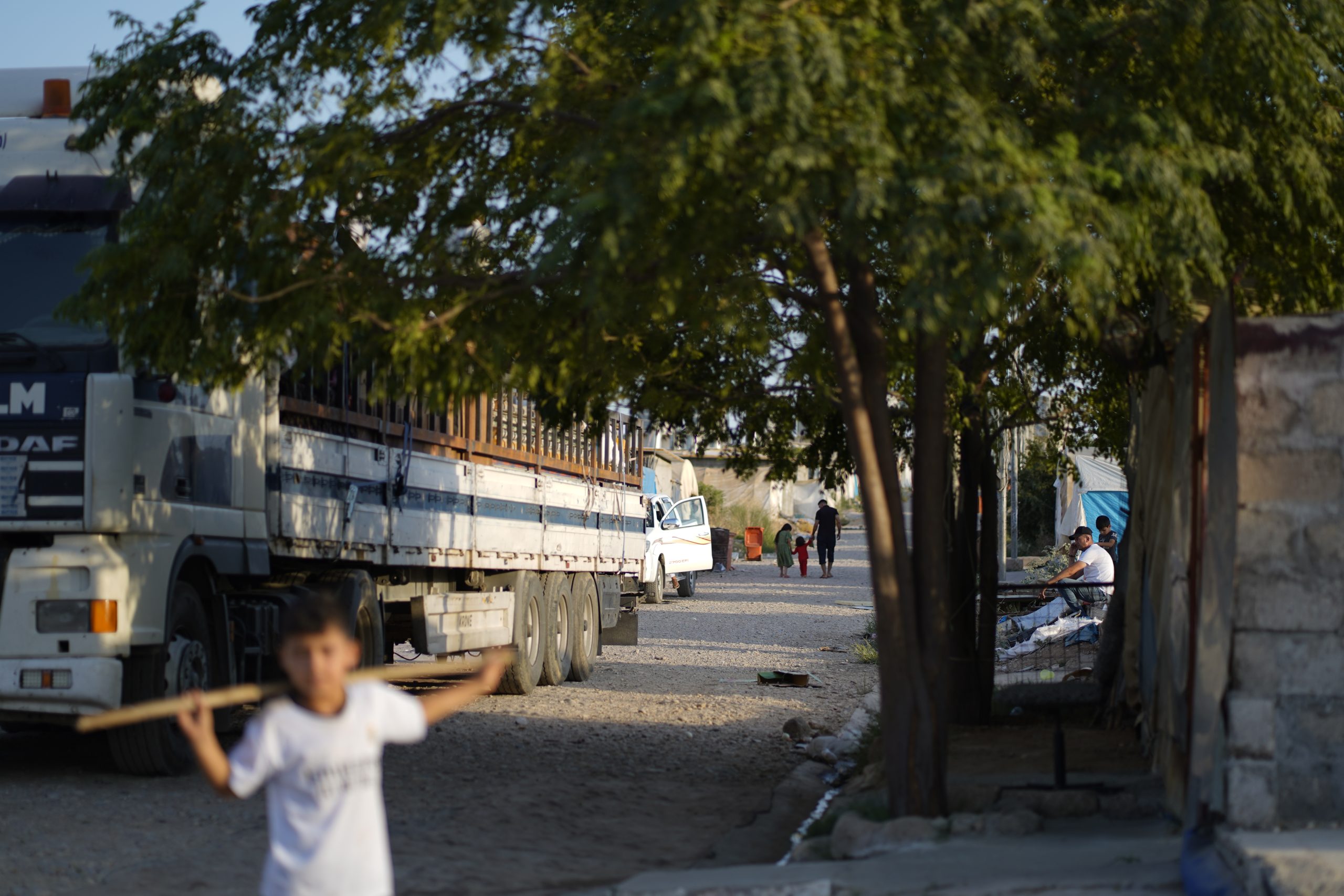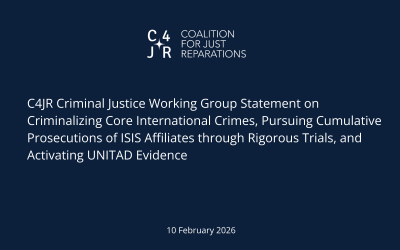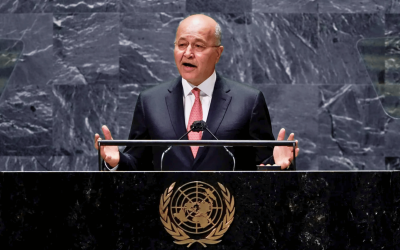By Alannah Travers, on behalf of the Coalition for Just Reparations (C4JR), Jiyan Foundation for Human Rights, SEED Foundation, and Yazda. Originally published in: The New Region. Photography by Muhsen Naif.
It has been ten years since the Yazidis and other minority communities in Iraq endured unimaginable brutality. August 3, 2024, marks a decade since ISIL tore through their homeland, and so many horrors began. Despite the enactment of the Yazidi Survivors’ Law (YSL) in March 2021, survivors’ needs remain largely unmet. The anniversary must not be only a time to remember the genocide, but a call to action.
Over the past few months, members of the Coalition for Just Reparations (C4JR), an alliance of local NGOs calling for comprehensive reparations for survivors of atrocity crimes perpetrated during the ISIL conflict in Iraq, have held extensive consultations with survivors to amplify the ongoing struggles and demands of their communities. It is with a heavy heart that C4JR along with the Jiyan Foundation for Human Rights, SEED Foundation and Yazda, publishes our joint report on what more is needed.
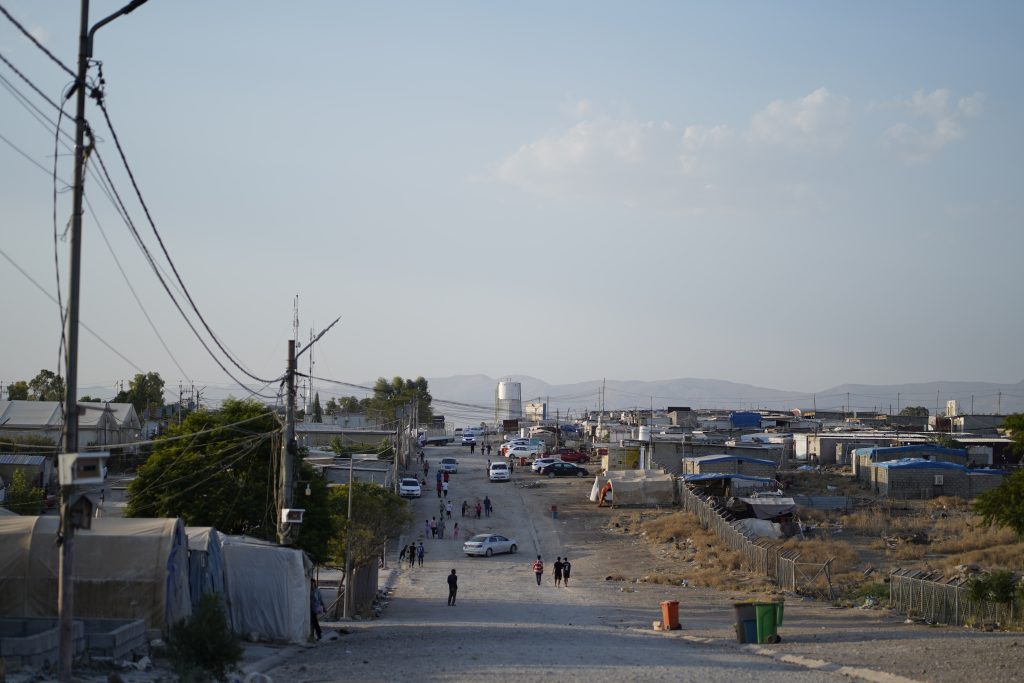
Photo: Muhsen Naif
Additional C4JR members including Better World Organization, DAK Organization, Farida Global, Free Yezidi Foundation, House of Coexistence, and Justice Organisation for Minority Rights (JOMR) conducted consultations with survivors from the four communities recognised as eligible under the YSL: Yazidis, Christians, Shabak, and Turkmen, involving participants aged between 20 and 47, both men and women, living in both across Iraq and abroad. Their findings form the basis of our report, recognising the disproportionate impact of the ISIL genocide on these communities and also their inclusion within Iraq’s key response framework, the YSL.
Survivors continue to live in fear and uncertainty, particularly in areas where security is fragile. Yazidi, Turkmen, Christian, and Shabak survivors all stressed the need for improved safety measures. “We are still living in camps and we do not feel safe,” one Yazidi survivor shared. This sentiment echoes across all minority communities, highlighting the discouraging security situation in Iraq and the persistent threats from armed groups. The report calls for comprehensive security measures to protect minorities and stabilise conflict-affected areas.
Healthcare is another area where survivors face significant challenges. The physical and psychological scars left by ISIL’s brutality are profound, and personal. However, healthcare infrastructure remains underdeveloped. Survivors often have to travel for basic medical treatment. “Open permanent psychological support centres for survivors and their families,” urged a Turkmen survivor. The report emphasises the need for free, accessible, and culturally sensitive healthcare services, including mental health support, to finally aid in their recovery.
The fate of the missing is a haunting question for too many families. Approximately 2,600 kidnapped Yazidis are still unaccounted for, with an unknown number from different communities across Iraq. The agony of not knowing the fate of loved ones continues to torment these families. “There are no efforts to search for missing and kidnapped people,” another Yazidi survivor said. Our report calls for a renewed commitment to finding kidnapped individuals and exhuming mass graves, providing closure and allowing proper burials.
Economic independence is key for the dignity and stability of survivors, yet too many remain dependent on aid. High unemployment rates and scarce livelihood opportunities exacerbate their vulnerabilities. The report highlights the importance of creating sustainable job opportunities and providing vocational training. Participants from all four communities emphasised how much they need job opportunities that match their skills and provide appropriate salaries. Supporting economic independence is essential for the long-term recovery and reintegration of survivors, for their families, and the community at large.
Justice and accountability remain elusive goals. While the YSL includes provisions for prosecuting ISIL perpetrators, challenges in implementation persist. Survivors express frustration over the lack of progress. “Justice must be achieved and criminals in the ranks of ISIL must be held accountable,” said a Yazidi survivor living in Germany. The report underscores the need for national and international efforts to prosecute ISIL perpetrators, ensuring that survivors see justice served despite the abrupt ending of UNITAD’s mandate, next month.
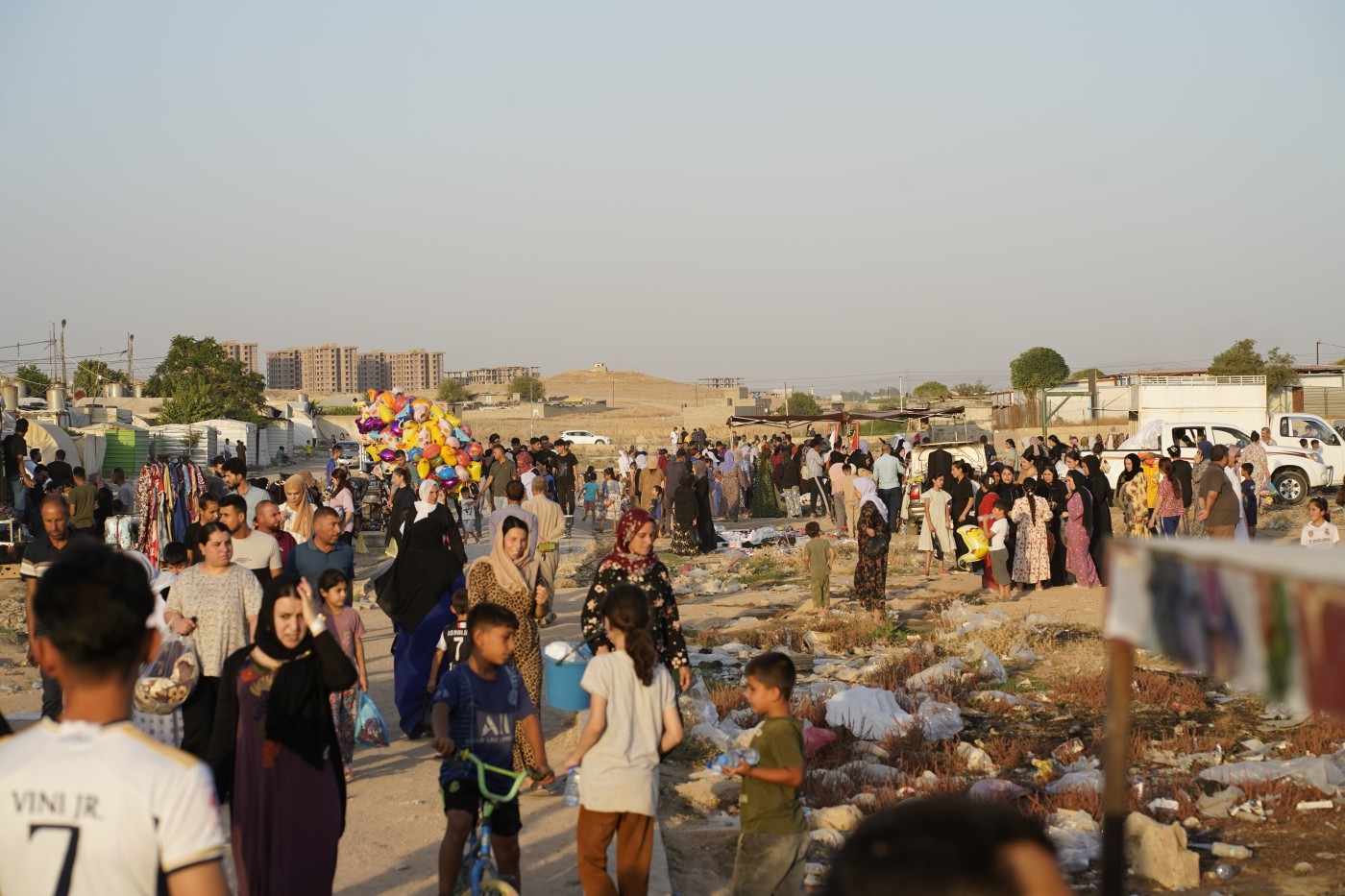
Photo: Muhsen Naif
Protracted displacement persists. Many survivors live in under-resourced camps, with the Iraqi government’s plan to close these camps by July 30, 2024, causing significant concern despite this evidently not happening. Survivors fear returning to areas like Sinjar due to security issues, widespread destruction, and lack of services. The report stresses the need for permanent housing solutions and adequate compensation for property lost during the conflict. “We are cut from education,” expressed a Yazidi female survivor, highlighting the disruption in educational opportunities for many survivors.
The need for equitable access to reparations is another critical issue. While the YSL recognises survivors from various minority communities, its implementation has left some without viable access to reparations. Survivors emphasise the importance of easing application and verification procedures and ensuring all eligible individuals can benefit. The report calls for a survivor-centred approach to implementing reparations, making them accessible to all who are entitled.
International recognition of the genocide committed by ISIL is still lacking, despite several countries having formally acknowledged it. Such recognition is vital for validating the survivors’ experiences and securing justice. “Acknowledging genocide is not enough; we need action on the ground,” explained a Yazidi survivor. The report advocates for broader international recognition and support to aid in the recovery and justice efforts for survivors.
Finally, the full implementation of the YSL is absolutely essential for addressing the needs of survivors and contributing to their resilience and recovery. While the law was a significant milestone, many survivors have yet to benefit from its provisions. “Encouraging and approving the Yazidi [Women] Survivors’ Law was an extremely important matter for the survivors and the families of the victims, but this does not mean that everything has been achieved,” said one Yazidi survivor in Germany. “There is more to be done for justice and compensation and implementation of all articles of YSL.” Survivors are calling for action, justice, and a commitment to fulfilling the promises made to them. A decade after the genocide, they deserve to be heard.
Download the full report in English: https://c4jr.org/wp-content/uploads/2024/08/10-Demands-10-Years-After-the-Genocide-by-ISIL_English.pdf
Fulll Arabic report to follow.
The Coalition for Just Reparations (C4JR) is an alliance of NGOs based in Iraq who came together to call for comprehensive reparations for survivors of atrocity crimes perpetrated during the ISIL conflict, seeking to provide a collaborative and safe space where the grievances of survivors belonging to affected groups – including Yazidi, Turkmen, Shabak, Kakai, Christians, Shia, Sunnis, and others – could be adequately addressed.
